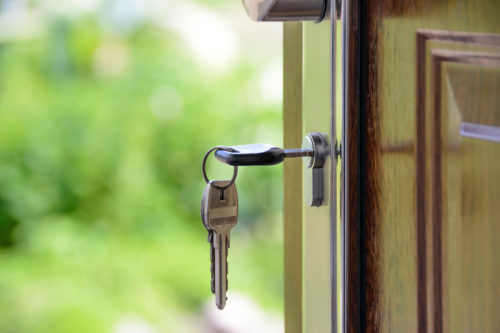
Filing for bankruptcy is a major decision, one that can be both frightening and complicated. Many individuals who face financial challenges worry about the potential impact on their most valuable asset: their home. Questions about what happens to a house during bankruptcy are common, and understandably so. Please continue reading and reach out to a knowledgeable Newburgh bankruptcy lawyer from our legal team to learn whether you can keep your house when filing for bankruptcy and how our legal team can help you through the process. Here are some of the questions you may have:
How Does Bankruptcy Affect Homeownership?
When you file for bankruptcy, the effect on your home depends on the type of bankruptcy filed and the circumstances surrounding your mortgage. There are two primary types of bankruptcy available to individuals: Chapter 7 and Chapter 13. Each has unique implications for homeowners.
- Chapter 7 Bankruptcy: Often referred to as “liquidation bankruptcy,” this type of filing involves selling off non-exempt assets to pay off creditors. However, there are exemptions, such as the homestead exemption, which can protect a portion of your home’s equity. If your equity falls within the exemption limits set by New York law, you may be able to keep your home.
- Chapter 13 Bankruptcy: Also known as “reorganization bankruptcy,” this option allows you to create a repayment plan to manage your debts over three to five years. With Chapter 13, you are often better positioned to keep your home, as long as you stay current with your mortgage payments and the court-approved repayment plan.
The type of bankruptcy you choose depends on various factors, including your income, debts, and the equity you have in your home. Consulting with an experienced bankruptcy attorney can clarify which option is best for your circumstances.
What is the Homestead Exemption, and How Does It Work?
A key element in determining whether you can keep your home when filing for bankruptcy is the homestead exemption. In New York, this exemption provides a level of protection for the equity in your home, but the amount varies based on the county where you reside.
For example, if you live in New York City or a surrounding area like Westchester, Rockland, Nassau, or Suffolk County, the homestead exemption is higher compared to upstate areas. Currently, in 2024, the exemption amount can be up to $179,975 for qualifying homeowners in these downstate regions. This amount may seem substantial, but if your home’s equity exceeds the exempted amount, the excess could be at risk in a Chapter 7 bankruptcy.
It’s important to understand that the homestead exemption only applies to your primary residence. Second homes, vacation properties, or rental investments are not protected under this rule. If your equity is protected by the homestead exemption, you may be able to avoid selling your home, but you will still need to manage ongoing mortgage payments.
Can I Prevent Foreclosure And Keep My House Through Bankruptcy?
If you are facing foreclosure or are behind on mortgage payments, bankruptcy can be a tool to stop or slow down the process. This is especially true with Chapter 13 bankruptcy. Once you file, an automatic stay goes into effect, which temporarily halts all collection activities, including foreclosure proceedings. This stay gives you breathing room and the opportunity to work on a repayment strategy.
In Chapter 13, you can often restructure missed payments and catch up on your mortgage over time. This gives you a chance to keep your house, provided you meet the repayment obligations. However, if you continue to miss payments, the lender may request that the court lift the automatic stay, which could resume foreclosure proceedings.
Chapter 7 bankruptcy also initiates an automatic stay, but it does not provide the same long-term options for saving a home from foreclosure. If you cannot keep up with your mortgage and have significant equity, the property could be sold to repay creditors. Therefore, Chapter 7 may be less favorable if preserving your home is your priority.
